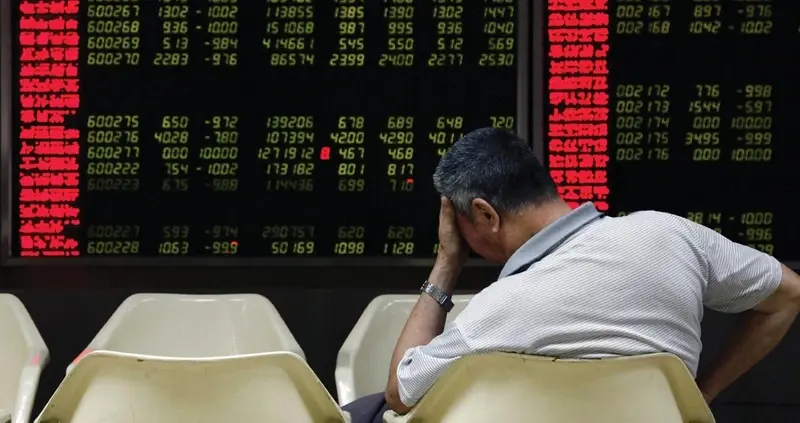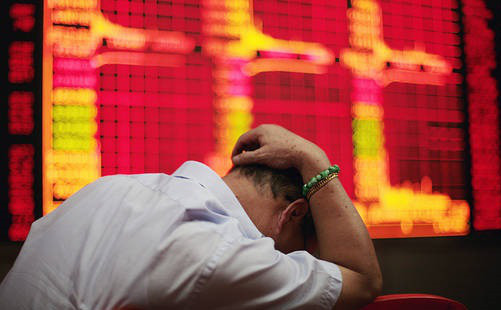
Shares in Fidelity China Special Situations (FCSS) continue to fall on Friday, softening a further 2.4p to 191.6p. A disappointing decline in half year net assets, undershooting its benchmark during the six months to September, is the cause on Friday.
Yet despite volatility in Chinese equity markets - October saw one of the sharpest monthly falls since the global financial crisis a decade ago - portfolio manager Dale Nicholls (pictured below) remains confident in the long-term growth potential of his portfolio.
UNDERSHOOTING THE BENCHMARK
The company’s net asset value (NAV) per share fell 9.1% in the half compared with a 4% decline for the benchmark MSCI China Index, while the trust’s share price fell by 8.8%. Underperformance versus the benchmark reflected the better performance by companies in the index that the company didn’t own during the period.
‘This was particularly the case in the energy sector where the share prices of CNOOC and PetroChina increased with the higher oil price,’ explains Nicholls.
‘This was partly offset by gains in China Petroleum & Chemical which is held because of its attractive valuation, improving refining mix and the potential unlocking of value in its marketing business.’
The subdued half year showing was also driven by sharp mark-downs of holdings such as Vipshop, an e-commerce platform for apparel and flash sales which ‘faced a challenging environment with strong competition’ and as yet has little to show for its collaboration with Tencent and JD.com. Also marked down was software and internet service play Kingsoft, which ‘experienced delays in launching new online games, which brought a series of downgrades’ according to Nicholls.
Compounding the problem was the volatility that hit Chinese stock markets during the half, which drove declines in the portfolio’s two largest holdings, Tencent and Alibaba.
However, strong performers included Yihai International, a ‘Hotpot’ condiment company which continued to deliver very strong growth. During the half, two of Fidelity China Special Situations’ unlisted holdings were listed: Jiguang on NASDAQ in the US and Meituan Dianping in Hong Kong, and both at market prices above their carrying values.
NO WINNERS IN A TRADE WAR
In today’s results statement, Fidelity China Special Situations cites the escalating US-China trade tensions as a ‘concern’, arguing there are ‘no winners’ in a trade war. Chinese exporters would see higher import duties on their products sold in the US and the US consumer would likely to see higher prices and increased inflation as a result, the company adds.
The latest decline in China’s Shanghai Composite index reflects caution ahead of next week’s G20 summit, where US President Donald Trump will meet Chinese leader Xi Jinping for crucial talks on trade. The decline in the market on Friday implies that investors are nervous that the two leaders won’t come to an amicable agreement.
As Russ Mould, investment director at AJ Bell, comments: ‘The Shanghai index is down 20% this year, making it one of the worst performers among the main indices in the world. In contrast, the FTSE 100 is down 9.2% year-to-date and the main indices in the US - the Dow Jones and the S&P 500 - are only 1% lower so far this year.'
Current volatility notwithstanding, Dale Nicholls expresses confidence in the long-term growth potential in his Fidelity China Special Situations portfolio. ‘China is a volatile market so there are always such risks. I take comfort from much lower valuations following the recent falls and the fact that negative factors overhanging the market have been well publicised. Investments in the company’s portfolio are predominantly focused on the domestic market and only 1.5% of their revenues are exposed to the US.
‘Even with a general economic slowdown, the medium term prospects for earnings growth remain strong. The current level of the stock market may or may not be the bottom of the market, but I am confident of long-term growth in the company’s portfolio from these levels.’
THE BROKER’S VIEW
As for brokerage Numis Securities, it comments: ‘It has been a difficult period for absolute and relative returns for Fidelity China with sentiment hit by the US trade war and slowing consumer growth. In addition, relative performance has been weak, in part, due to a lack of exposure to energy stocks.
'Even so, we continue to regard Dale Nicholls highly and his track record is strong since taking over the portfolio from Anthony Bolton in April 2014, with an NAV total return of 98% versus 77% of the MSCI China in sterling.
‘The portfolio positioning means that performance will be dependent on sentiment towards the Chinese consumer. Fidelity China seeks to exploit the closed-end structure via its active use of gearing, as well as exposure to mid/small caps and unquoteds. We believe it is an attractive vehicle for investors that are comfortable with the risk profile.'







